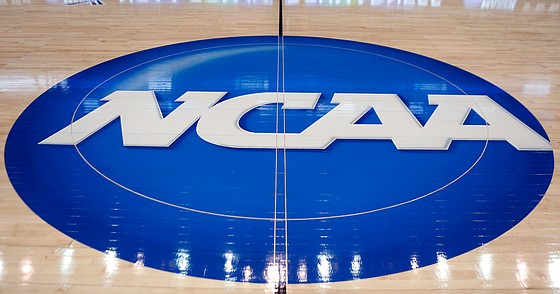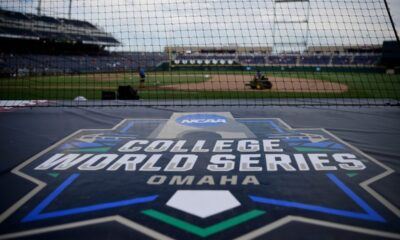
The NCAA on Wednesday voted to suspend the independent accountability resolution process.
The vote to eliminate IARP passes is part of an overall overhaul of the NCAA’s violations process, most relevant to those related to the Kansas basketball program awaiting judgment on violations.
According to the news release announcing the vote, the intent of the NCAA violations procedure change was to “modernize and enhance the process while focusing national office and membership resources on the most serious violations.”
Jere Morehead, Chairman of the Board of Directors, said: “With the adoption of a new constitution in January, NCAA members committed themselves to settling cases fairly and in a timely manner, thereby holding those responsible for violations accountable and forcing them to commit violations of the rules. We avoided punishing those who didn’t.”
As such, the NCAA adopted three major proposals on Wednesday. The deprecation of IARP was one of them. It will be disbanded as soon as the five remaining cases on the road are finalized.
Created in 2019 on the recommendation of the College Basketball Commission, the IARP process was terminated for two main reasons. First, the NCAA said on Wednesday that the number of cases referred to IARP was “higher than originally anticipated.” Second, the time and resources required to resolve IARP cases prolonged the process and created a significant backlog that drew criticism throughout. college basketball.
The NCAA lawsuit against KU, which includes five Level 1 violation allegations, head coach liability accusations, and a lack of organizational control tag, was filed on July 1, 2020, nearly a year after KU received its initial notice. accepted by IARP to date. Claimed by the NCAA in September 2019, he is now over two years old.
In April 2021, the NCAA announced that final judgments on all six IARP passes are expected within the next 12 months. However, only one of the six cases was resolved in that time. Last December, North Carolina was placed on a year of probation following her IARP ruling for recruitment violations.
KU, Arizona, LSU, Louisville, and Memphis are the five agencies with violations still being reviewed by the newly formed IARP. IARP was created specifically to handle a complex case related to the recent FBI investigation into corruption in college basketball recruitment.
All IARP decisions are final and not subject to appeal. This differs from rulings made by the more traditional NCAA Violations Commission.
The timeline for the remaining five rulings is unclear, and several people involved in college athletics, including outgoing NCAA president Mark Emmert, have expressed frustration over how long the IARP process has taken. is doing.
“For everyone to see, they took too long,” Emmert said at the Final Four in early April.
In addition to eliminating independent paths, changes to the peer review process and appeals process were also adopted by the NCAA on Wednesday.
Changes to the review process designed to increase transparency and expedite resolution include:
• More clearly defined criteria for law enforcement staff claims.
• Clarification about the role of school leadership in research.
• New standards for head coach liability requirements.
• Create a public dashboard of existing violations.
Changes to the appeals process aimed at clarifying standards, reducing the number of appeals, and completing the overall violations process in a more timely manner include:
• Limit appeals of penalties only to those who violate legislated penal guidelines.
• Overturn the decision of the Violations Board only if the appellant proves that no reasonable person could have made the decision.
• Resolve the majority of appeal cases through written records rather than oral arguments.
• As with peer review proposals, we prohibit timeline extensions except in extreme and well-defined circumstances.
• Remove the automatic suspension of appealed penalties.
• Authorize violation appeals boards to issue summary confirmations of COI decisions without further comment.















